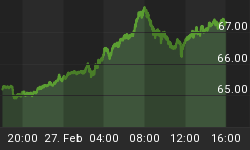Political challengers, you just saw a great example of how to run against an incumbent when things in your country are perfect, a seemingly impossible task: convince voters there is essentially no difference between your ideas and those of the incumbent. This strategy was just worked to perfection in Australia, where a week ago the liberal Labour Party's Kevin Rudd was elected as the country's new prime minister, unseating the long-ruling conservative, John Howard.
Despite the stark contrasts between the two men, the same mantra was repeated over and over by the campaign and in the press: there really is little difference between the two men's positions.
Really?
The folly of that assertion was made plain yesterday when the new prime minister signed Australia onto the Kyoto Protocol in his first political act the same day as his swearing in. Regardless of whether one believes this to be good policy, it can't be argued that it will impose heavy new burdens on the nation's economy -- particularly the resource-based economy of Western Australia -- as well as additional costs that will fall onto businesses and consumers alike. John Howard refused to ratify Kyoto.
Here are a few other "non"-differences:
- Mr. Rudd has vowed to pull Australian troops from Iraq
- He is a close friend of unions, one who will almost certainly roll back labor reforms made over the past few years and his appointees are already issuing stern warnings to employers
- Despite campaigning as a fiscal conservative (aren't they all when they're running?!), Rudd will certainly be a bigger spender than his predecessor
- Kevin Rudd has decried Australia's interest rate increases and made that "issue" a central point of his campaign
See, no difference between the two men at all!
That last point about interest rates, however, is particularly noteworthy because the country's big interest rate differential with other countries has underpinned its strong currency in recent years while likely minimizing the effects of global inflation on everyday Australians, which are being felt more here as our currency falls.
Should the new government work to pressure the central bank to lower interest rates in the face of evidence they should act to the contrary, it could help weaken the Aussie dollar; indeed, the Rudd's economic team is already loudly beating the drum against rising mortgage rates, which probably marks just the beginning of its push for lower rates overall.
And all of this leads to a larger point: despite the ongoing litany against the U.S. dollar -- and there are many reasons to worry about its direction and health -- currencies are a much more complex story than many commentators would make it seem. Other central banks, most notably that of the U.K., are already starting to clearly tilt toward lowering interest rates; should that trend take hold across the board, it could make currency trading much less clear in the intermediate term and might explain why the U.S. dollar actually strengthened last week despite the confirmation from some Fed board members that a December rate cut was a certainty.
A global trend of falling interest rates would be beneficial to the ongoing commodity bull market but it is a matter of ongoing analysis to determine which currencies will rise and fall, anti-U.S. rhetoric aside.
Back to Australia, for which economic conditions had been literally perfect in recent years and which had also been managed admirably by Mr. Howard: the country will now most definitely proceed along a different course, one which will likely change which of its industries will be most attractive for investment purposes and perhaps take some of the luster off of its currency.
The age-old adage of, "if it ain't broke, don't fix it," was roundly ignored by Australian voters. We will soon find out at what cost.
*Note: you can listen to a further discussion of currencies, interest rates and the Fed's upcoming meeting on this week's edition of my podcast, "Market Neutral."















